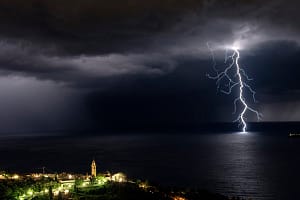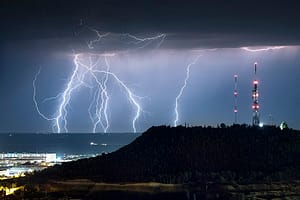The Met Office has issued an “extreme” yellow warning for snow and vast swathes of ice for Sunday and Monday.
They warned that from 3pm on Sunday until 10am on Monday the adverse weather will affect “many parts of the UK.”
The Met Office said on Sunday morning, “Rain, sleet and snow clearing the south, then ice developing on some surfaces.”
Adding, “Probably some icy patches on some untreated roads, pavements and cycle paths, making accidents more likely and journey times longer.
“Icy surfaces likely, increasing the risk of slips and falls.”
BBC Breakfast host Ninan Warhurst called the damage created remarked that “heavy snowfall left hundreds of drivers stranded” on Saturday.
Co-host Ben Thompson added: “Several weather warnings remain in place across much of Scotland and northern England this morning.
“The effects of Storm Arwen continue to disrupt transport networks and power supplies.”
BBC News reporter Greg McKenzie told viewers, “Power lines were brought down in the Yorkshire dales, leaving many without electricity.
“Scotland and the northeast of England felt Storm Arwen’s full force, with many battered by strong winds of almost 100mph.”
Network Rail Scotland said it was “one of the most challenging storms in recent memory.”
David Punton, from the Newcastle Metro network told the BBC, “This is one of the worst winter storms we have seen on record, which goes back to 41 years.
“In terms of the scale and speed of the damage caused by the winds, it has been horrendous for us.”
BBC News reporter Greg McKenzie told viewers: “Power lines were brought down in the Yorkshire dales, leaving many without electricity.
“Scotland and the northeast of England felt Storm Arwen’s full force, with many battered by strong winds of almost 100mph.”
Punton, from the Tyne and Wear Metro, told the BBC: “This is one of the worst winter storms we have seen on record, which goes back to 41 years.
“In terms of the scale and speed of the damage caused by the winds, it has been horrendous for us.”






Leave a Comment